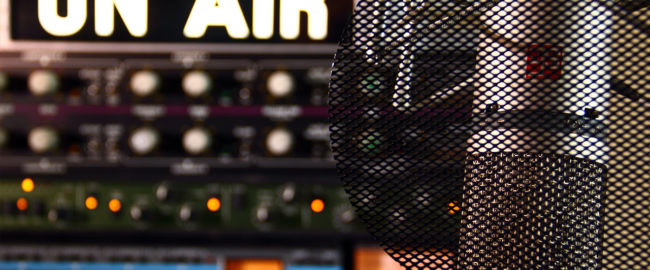Within the framework of the module “Communication Practices and Mediation Devices”, the students of the 3rd year degree in Information-Communication, majoring in “Innovation, Design and Digital” have conducted interviews on the theme of immigration. They are currently broadcast on Radio Ondaine (90.9 Fm) and available for replay on www.radio-ondaine.fr. Radio Ondaine is characterised as a community radio station, covering a wide range of topics, with an emphasis on the fight against discrimination, education, local development, living together, solidarity, etc. Another part of its activity is media and information education, with workshops held in schools, such as this one at Télécom Saint-Etienne.
The students were supervised in carrying out their project by Laurent Arrouès, a lecturer at Télécom Saint-Etienne and by Nicolas Urbaniak, a radio mediator for Radio Ondaine since 2005.
Interview of Nicolas Urbaniak
How is the theme chosen?
Nicolas : « This year, we used the regional biennial “TRACES, history, memories and current events of migrations in Auvergne Rhône-Alpes” to frame the students’ work. From there, they were able to choose their guests, and after having checked that the theme of Migration, Reception and Culture was respected, I simply assisted them in the realization of their interviews. The productions are interesting, surprising, and above all a source of information. The students have different personal histories, their own networks, which gives a great diversity in this series of interviews. »
What makes a good radio interview successful in your opinion?
Nicolas : « Let’s quickly move on to the technical quality, which must be taken care of. When you make a radio programme, behind the radio or the computer, there are listeners who are here to listen but also to reflect on what is said, so you have to try to include them in the programme. In my approach to interviews, I consider that the most important thing is the word of my guests. Of course, I have an interview plan that I make sure I follow, but I don’t allow myself to change course during the interview. You also have to show the guest that you are listening, that even if you don’t agree all the time, you are here to exchange, discuss, interact… On Radio Ondaine, the idea of doing fairly long montages shows our desire to give the floor. To conclude, a good interview is an honest interview. »
Feedback from two students: Lea and Eva
How did you choose and find the person to interview?
Léa : « I had my criteria, I wanted the person to tell their own story, their own story, so the task was all the more complicated. So I took a closer look at my friends and their origins, and that’s how I learned that the grandfather of one of my friends was a pied-noir from Algeria and that he had experienced painful things during the war. »
Éva : « I called on one of my acquaintances who, in the course of her work, works with people of immigrant origin. I therefore interviewed a committed citizen who helped an Albanian family when they arrived in France. »
What are the various steps to follow when conducting an interview?
Léa : « First of all, I did my own research on the Algerian war, as it was a subject I knew nothing about. Then I chose to do a semi-directive interview, the aim being to let the guest speak, in his own words, in order to have a maximum of emotion and spontaneity in his words. Once the interview was done, all that remained was to edit the interview, the most time-consuming task, in order to have a clean rendering. »
Éva : « When conducting an interview, you first have to find the person or persons to be interviewed, then you have to find an angle for the interview. The interview must make sense and provide real information! Then, you have to ask the questions, proofread and then interview the people. »
How does Radio Ondaine support you?
Léa : « Mr Urbaniak was very helpful: he taught us how to use the school’s equipment and how to conduct an interview properly. He also validated our topics so that we would not go off topic and we wrote notes of intent so that it would be clearer for him. »
Éva : « Radio Ondaine is helping us with the interview. It also allows us to give visibility to our work.»
What did you think of this journalistic exercise?
Léa : « I am very happy that I was able to do this exercise because it taught me to use a new software: audacity, and to develop some of my skills. This exercise is a real asset in our communication training. »
Éva : « I found it very interesting and rewarding. I enjoyed animating the web radio throughout the year with the creation of posts on social networks or through the shows and interviews we did. It also allowed us to familiarise ourselves with editing software such as Audacity. It is an experience to be repeated! »
Listen to the interviews with Lea and Eva and find the full interviews here.

